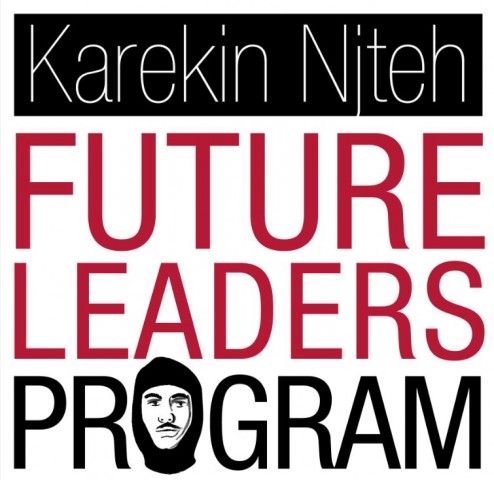My 2013 Future Leaders Program Experience

I don’t even know where to start when describing my internship experience during these past two months. The time spent interning at the AYF Office as part of the Future Leader’s Program has been a roller-coaster adventure that broadened my horizons from working solely in my local chapter to experiencing how the organization is run regionally and worldwide. I have networked, I’ve met new and influential people, and I have begun working with different organizations. At times, I felt overwhelmed at how these organizations have dedicated their lives to causes that they hold dear to their hearts. The common thread between these organizations and individuals is their commitment to fighting for Human Rights and combating injustices throughout the world, whether in the past, present, or future.
During just these 60 days of working for the AYF, I have witnessed political uprisings in Syria, Egypt, Turkey, and Armenia–four countries, whose citizens have been struggling for freedom of speech, and four movements for which one could rarely find an unbiased view when following traditional media. It took days of research to find the political motivations involved in each movement, and to learn what was really going on in these countries rather than a government-sponsored cover-up of the activism in their country. At times, it was dissuading to see the mainstream media coverage and realize that no one was asking why people were rebelling, or why there is a bitter civil war in Syria. For example, the media portrays the Syrian forces as using illegal means to kill the rebels, but what if the media is purposely hiding the truth in order to better protect American interests in having the Syrian government be brought down.
I have learned to question, to learn about motives of the media, and to never take anything at face value. Nowadays, citizens have learned to question and to demand their freedom of press and speech, but at what cost? It is our job as civil activists to ensure that we do not judge one another; instead, we need to respect one another regardless of race, ethnicity, gender, or religious creed. Whether living in America, where there is no current civil rights movement that is apparent to the entire population, or living in Armenia, where citizens recently stood up to voice their concerns against an unjust and fraudulent election, I have learned to be aware of my surroundings.
As an Armenian youth, my promise is that I will continue the fight of our ancestors, who survived a plan of extinction for an entire ethnicity. I will fight for recognition, reparations, and restitution; I will fight to stay Armenian; I will uphold our traditions and remember our culture. After surviving the annihilation of 1.5 million Armenians and the displacement of countless others, it is not enough to simply give our children Armenian names. Whether or not you speak, read, and write Armenian, our homeland and our heritage is a part of your future. So I ask each reader, regardless of heritage and ethnicity, to begin researching and studying their culture. The 100th anniversary of the Armenian Genocide is less than 2 years away, but let us not regard that as 100 years since the attempt at bringing Armenians to extinction. Let us use this opportunity to show the world how and why we were able to survive. Let us embrace that constant belief in our faith, culture, and traditions.
«Մենք քիչ ենք‚ սակայն մեզ հայ են ասում։» -Պարոյր Սեւակ
“We are few, but we are called Armenians.” -Baruyr Sevag
-Joseph Kaskanian


Leave a Reply
Want to join the discussion?Feel free to contribute!